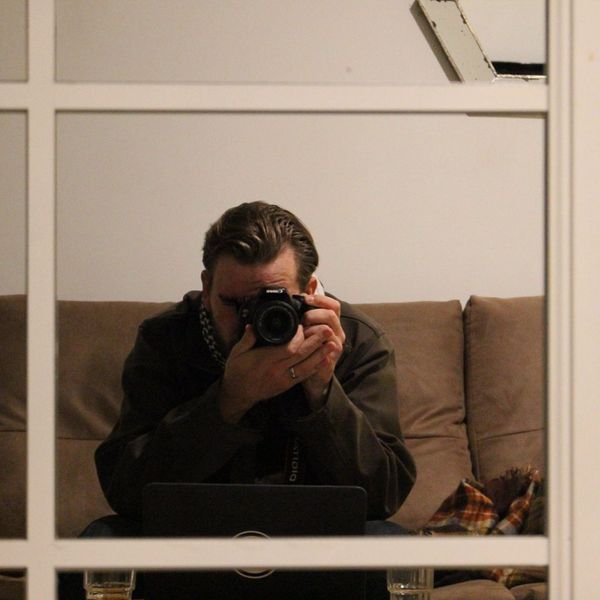VALLEJO — Seven months after the Vallejo City Council approved an offer from surveillance technology firm Flock Safety to install gunshot detection systems throughout Vallejo free for a year, the devices have not been installed and the city has yet to execute a contract.
At the same time, Vallejo’s Surveillance Advisory Board reviewed a privacy policy for the gunshot detection system at its regular meeting on Thursday evening. But without a contract in place, the board lacked crucial information on how to proceed with its policy.
The surveillance board initially voted against using Flock’s Raven gunshot detection system, citing concerns with the accuracy of similar systems in other cities and that false alarms could needlessly escalate police calls. But the City Council in December overruled the surveillance board and voted to bring the tech to Vallejo.
Vallejo Police Capt. Drew Ramsay — the board’s new central contact at the department — said Vallejo is one of the “first customers and biggest customers” of Flock Safety, which describes itself as a “a public safety operating system that helps cities, businesses, schools, and law enforcement in thousands of communities work together to stop crime, protect privacy, and mitigate bias.”
Ramsay said that once the contract is executed, Flock would install about 120 audio sensors across the city that would be paired with Flock’s existing Automated License Plate Readers, with higher concentrations in areas of the city with a higher number of calls for service and gunshots.
“We’re targeting the highest concentration areas of gunshot, gunshot calls and gunshot or gun violence,” Ramsay said.
Vallejo police requested to use a gunshot detection system for one year of beta testing, during which “VPD will evaluate the effectiveness of the technology, identify issues or areas of concern, and if possible develop mitigating strategies,” the draft policy states. With that, the department will be required to its findings report monthly to council and the board “that promotes accountability and transparency.”
Ramsay told the board that Vallejo needs Flock’s digital ears to alert police to shootings when people don’t. “The hope is that this technology saves lives,” Ramsey said. “It’s not uncommon that shootings happen and people don’t call 911.”
Board members asked Ramsay and recently hired Deputy Chief Joseph Gomez about specifics of the addition of gunshot detection technology and how it would work.
Gomez, who worked for three decades in the Fresno Police Department, expressed alarm with the rate of violence in his new city.
“There are so many gunshot calls here, people getting shot, people getting killed per capita. It is unreal,” Gomez said. “Vallejo is like nothing I have ever seen. There’s so much violence. It’s so dangerous in Vallejo.”
According to the FBI’s Uniform Crime Reporting Data for California police departments, in 2019 – the most recently available data by department – Vallejo had the 33rd highest rate of homicide in the state, behind nearby cities like Oakland, Antioch, Richmond and Stockton. Fresno didn’t submit its data to federal officials that year.
When the board raised questions about data retention of Flock’s audio recordings of big bangs in Vallejo, Ramsay said the “raw data is not releasable to the public,” and is stored by the department and not Flock. Ramsay said “people’s privacy is at the highest level” and the recordings will not be subject to state public record laws.
Surveillance board Chair Andrea Sorce and others on the board expressed concerns of Vallejo police using the gunshot detection technology to “roll up on a scene with a different mindset” if Flock’s technology is telling them something is going on when something isn’t, like a cop expecting an active shooter when one isn’t there.
“If the members of the public didn't hear a gunshot, and have no idea why the officer is showing up, it could lead to some really tense interactions,” Sorce said.
Ramsay assured that Vallejo police would use other factors when using force.
“If we just had a call or an activation, there was a gunshot at the corner of here, and we drive up and there's someone standing there, we can't just we can't assume that that's the person,” the captain said. “There has to be something else to that.”
Large parts of the board’s monthly meeting were spent with members familiarizing themselves with surveillance technology, how it’s being used in other cities, and the basics of establishing themselves as a would-be stop-gap against a police department with a history of a deploy-technology-and-ask-questions-later-attitude.
But when it came to Ramsay providing Vallejo’s surveillance board with updates on its usage of technology — from drones to license plate readers — Ramsay arrived unprepared.
“I think the three new board members, I would like to do more deep dives into each technology separately,” Sorce said. “But do we have any information and updates to share for this meeting? Just on on usage of the technologies? I guess we can start with the drones.”
“I gotta be honest with you, I was ready just for the Raven report,” Ramsay said.
“You want to defer to the next…” Sorce said.
“We can defer. If you're talking about what, like, the number of uses and stuff like that, I think that that stuff gets published on the website,” Ramsay said, possibly referring to Vallejo police’s page on its “Unmanned Aerial System,” which was last updated with data from 2021. At the board’s last meeting, Lt. Sanjay Ramrakha said that the department deployed its drone 38 times last year.
The Vallejo City Council voted in September 2021 to create the surveillance oversight board at the urging of the local chapter of American Civil Liberties Union (ACLU) chapter and Oakland Privacy, the latter of which sued the city, arguing Vallejo had violated state law when it acquired a cell site simulator, more commonly known as a Stingray, without public input. Vallejo only changed its Stingray policy when ordered to do so by a judge in that suit.
Editor's note: This story has been updated to clarify that Vallejo police provided data at previous meetings and the board met on Thursday to review a draft gunshot detection policy.
Before you go...
It’s expensive to produce the kind of high-quality journalism we do at the Vallejo Sun. And we rely on reader support so we can keep publishing.
If you enjoy our regular beat reporting, in-depth investigations, and deep-dive podcast episodes, chip in so we can keep doing this work and bringing you the journalism you rely on.
Click here to become a sustaining member of our newsroom.
THE VALLEJO SUN NEWSLETTER
Investigative reporting, regular updates, events and more
- government
- policing
- Vallejo Police Department
- Vallejo Surveillance Advisory Board
- Flock Technology
- Drew Ramsay
- Joseph Gomez
- Andrea Sorce
- Gunshot detection

Brian Krans
Brian Krans is a reporter in the East Bay who covers public health, from cops to COVID. He has written for the Oaklandside, Healthline, California Healthline and the Appeal.
follow me :




